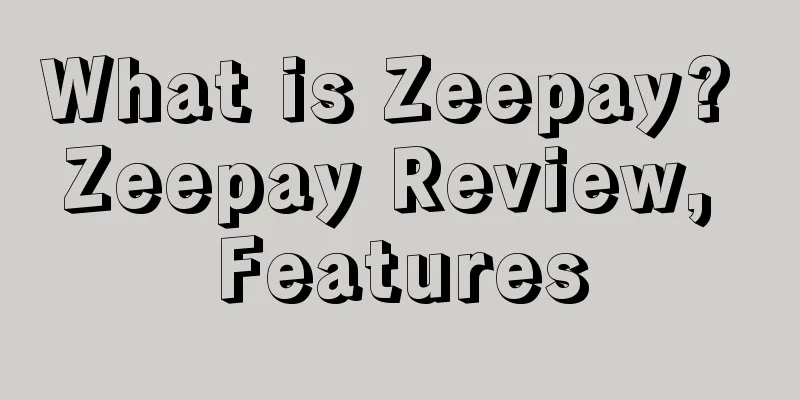A batch of sellers' links were frozen, is there another bug in Amazon?

|
For seasoned Amazon sellers, occasional problems with links or accounts may not seem like a new thing.
But recently, many sellers have found that the links they just created are frozen. Is this a new policy of Amazon or another bug?
A batch of US site seller links have been frozen
Recently, a group of sellers reported that the links they created a few days ago were shown as unsaleable (frozen) and they were not sure what was going on. After contacting the official customer service, they did not get an effective solution.
According to one of the sellers, after contacting Amazon customer service, he learned that many people have encountered this problem recently. He originally thought that there was a bug in the background, but now he is more inclined to believe that it was caused by Amazon's new policy.
After verification by multiple sellers, it was found that the frozen links all had one thing in common: they all belonged to the children's toys category.
A senior seller said that it was probably because Amazon introduced a new policy. Children's toys on the US site must now be reviewed and approved before they can be shipped and sold. Before that, the links will be in an unsaleable state.
In response to this issue, some sellers said that they could click on the compliance review in the lower right corner of the account status, and they should be able to see the relevant documents required to be submitted. However, it seems that due to the recent surge in the number of reviews, Amazon's review speed after submitting the documents is obviously a bit slow.
According to feedback from a toy seller, it has been almost a month since he submitted the relevant documents, but they are still shown as under review. However, the products have been made and he can only wait anxiously in the warehouse.
Faced with this situation, sellers can only sigh helplessly and hope that Amazon can speed up the review process.
Industry insiders revealed that Amazon is currently conducting a strict investigation into the falsification of compliance documents for toys in the United States. Many sellers have received emails from Amazon stating that their store links have been removed or may even be permanently suspended.
It is understood that a toy seller was found to have forged a product certificate by Amazon due to supplier issues. He then urgently made a real certificate, but it was also judged as a fake certificate by Amazon, which ultimately led to the account being blocked.
Although the second time may be a misjudgment, sellers had better not take chances, especially toy sellers, who must ensure that the product certificates are foolproof from the beginning.
As we all know, the toy category is a top priority for Amazon's review. Once Amazon finds that no certification has been submitted or the information is falsified, it will be very difficult to appeal.
Some time ago, an Amazon toy seller suffered a Waterloo incident.
The darkest hour for toy sellers
On the eve of the peak sales season in the second half of last year, a large number of toy products were suddenly "cleaned out".
It is understood that ASINs associated with many well-known toy brands were restricted at the time, and many products suddenly could not be sold, including some old links that were more than ten years old.
Sellers contacted Amazon, but the response they received was: "The platform has reviewed your listing and found that the brand is not currently accepting applications. If you want to work with this brand, you can ask them to add you as an authorized dealer to their brand whitelist."
In addition to the official suggestions, restricted sellers are constantly looking for other methods. Several toy sellers said: I set aside some time every day to check whether there is any new news on the platform, but there seems to be no progress.
Most of the sellers affected this time have been selling brand-related products for many years. For them, the sudden unavailability of products that have been authorized and sold for many years will have a great impact on sales.
It is worth noting that one of the affected sellers pointed out that Amazon seemed to be intentionally targeting hot-selling products. The seller found that non-hot-selling products of the same brand were still selling normally. However, many higher-ranked products were shown as "unavailable for sale".
After realizing this, a large number of restricted sellers began to question the platform's practices. Most people meant that these brands were only restricted on the Amazon platform, but not really restricted elsewhere.
People familiar with the matter said that these restricted brands seem to be increasing every day, and if sellers are not careful, they will affect their normal sales and even the security of their accounts.
Industry insiders analyzed that it is not easy to resume sales of restricted products. It is obvious that Amazon only allows brands to put authorized sellers on the whitelist, and sellers who are not on the whitelist will be kicked out.
If you want to solve the problem, the most direct way is for sellers to contact the brand owner to see if they can be added to the brand whitelist, which may be one of the best solutions to this problem.
The US market is increasingly stringent on toy regulation
In recent years, safety regulations on children's toys in the US market have become increasingly stringent.
According to incomplete statistics, in 2024 alone, Amazon removed more than 100,000 toy products from its shelves due to non-compliance with CPC certification.
The so-called CPC certification, or Children's Product Certificate, is a compliance certificate for children's products mandatory by the U.S. Consumer Product Safety Commission (CPSC). It is applicable to all toys, clothing, and care products for children aged 12 and under.
It can be said that CPC certification is a pass for toy products to enter the US market.
For toy sellers on the US site, they now need to allow 2-3 weeks to complete certification before putting new products on the shelves to avoid being unable to sell them.
In addition, sellers also need to ensure that the product model and age identification are exactly the same in the report, CPC statement and link.
Finally, sellers should also pay attention to updates to CPSC regulations on a regular basis to avoid situations where new regulations are added but sellers are not aware of them. Amazon Link freeze |
<<: The job hunting wave is coming! A large number of workers are "seeking change"
Recommend
A number of Amazon sellers have run out of stock after 20 days of shipping
There are a lot of problems with the last mile in...
SHEIN plans to sprint for IPO this year! Valuation shrinks and faces multiple crises
As a hot cross-border e-commerce unicorn, SHEIN &...
Can an e-commerce platform have its own brand?
There was a discussion on Twitter about e-commerc...
What is Girlfriend Collective? Girlfriend Collective Review, Features
Girlfriend Collective is an online sales website f...
What is Berlin Brands Group? Berlin Brands Group Review, Features
Founded in Germany in 2005, Berlin Brands Group is...
What is Snoopy Supply Chain? Snoopy Supply Chain Review, Features
Snoopy Supply Chain Management Co., Ltd. is deter...
Recall incidents are frequent, sellers should pay attention to product compliance
There are many recall incidents, and children'...
What is Fuxue ERP? Fuxue ERP Review, Features
Fuxue ERP is an internally deployed desktop applic...
It’s hard! Another e-commerce platform declared bankruptcy
It seems that the collapse of e-commerce platform...
What is hppartsshop? hppartsshop Review, Features
hppartsshop is a well-known 3C accessories supplie...
What is Neighborhood Goods? Neighborhood Goods Review, Features
Neighborhood Goods is a direct-to-consumer depart...
More than 90% of samples tested positive! The epidemic situation in India is not optimistic, and the supply chain continues to be under pressure
Recently, according to Indian media reports, in t...
The number of orders has skyrocketed 10 times, it’s time for domestic brands to go overseas!
Under the great wave of going overseas, many Chin...
Maximum subsidy of 10 million yuan! Foshan announces cross-border e-commerce support policy
Some time ago, the news that Shenzhen would provi...
Shenzhen and other places work from home, 70% of cross-border companies pay salaries normally
How is the working experience of cross-border peo...









